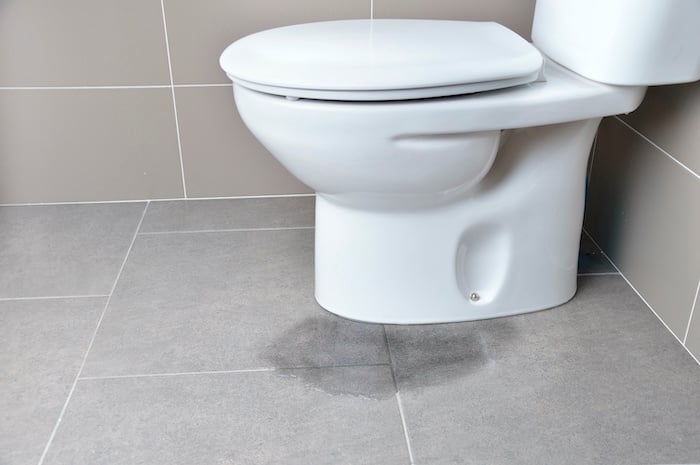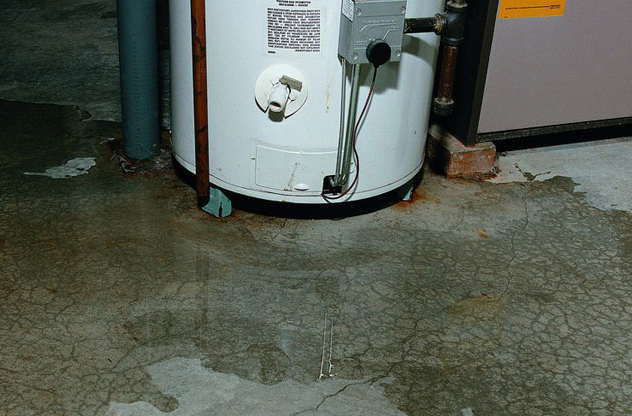The 5 Usual Water Leak Origins
The 5 Usual Water Leak Origins
Blog Article
Almost everyone is bound to have their private thinking with regards to How to Find and Prevent Water Leaks in Your Home.

"Be cautious of little expenses. A small leak will sink an excellent ship." - Benjamin Franklin.
He could not have been much more ideal due to the fact that water leaks in our houses cause a waste of resources, increasing our water expenses. This increase could seem minimal at first, it can lead to considerable costs that can break your bank. In addition to a rise in costs, water leaks likewise trigger undesirable natural development, architectural damages, and also even electrical dangers.
Figuring out if you have a water leakage isn't constantly very easy because of being not able to see the majority of the pipework in your home. However, If you have had a boost in your water expenses lately, discovered water discolorations on ceilings and also walls, scented lousy smell, and so on. You might intend to take into consideration requesting plumbing solutions to get it looked into.
There are several reasons for water leakages, and also we have put together the typical reasons below. Inspect to see if you have had associated issues in your home just recently.
Obstructed drains
Food bits, dirt, and oil can trigger clogged up drains pipes and also obstruct the flow of water in and out of your sink. If undealt with, boosted stress within the rain gutters can create an overflow as well as finish up fracturing or bursting pipes. To stay clear of clogged drains in your home, we advise you to avoid putting fragments down the drain and also regular cleaning of sinks.
High water stress
You observed your house water pressure is higher than typical however after that, why should you care? It runs out your control.
It would be best if you cared since your average water stress need to be 60 Psi (per square inch) and also although your residence's plumbing system is designed to stand up to 80 Psi. A boost in water pressure can put a stress on your residence pipelines and lead to cracks, or worse, ruptured pipelines. If you ever discover that your house water pressure is more than normal, get in touch with a professional regarding managing it.
Rust
As your pipework ages, it obtains weaker as well as much more susceptible to rust after the regular passage of water through them, which can gnaw at pipelines and also create splits. A noticeable indication of rust in your home plumbing system is discoloration and although this might be tough to detect due to the majority of pipelines hidden away. We encourage doing a frequent examination every few years and also change pipes once they are old to ensure a sound plumbing system
Deteriorated pipe joints
Pipeline joints are the parts of our plumbing system where the pipelines attach. They are the weakest point of our plumbing system. As a result, they are more at risk to degeneration. It is important to keep in mind that even though pipelines are created to hold up against pressure and also last for a while, they weren't made to last permanently; consequently, they would wear away in time. This deterioration could cause splits in plumbing systems. An usual indicator of damaged pipeline joints is too much sound from faucets.
Busted seals
An additional root cause of water leaks in residences is broken seals of residence appliances that use water, e.g., a dishwashing machine. When such appliances are mounted, seals are set up around water connectors for easy flow of water via the equipment. Therefore, a busted seal can cause leakage of water when in operation.
With little or no understanding of plumbing, comprehending your residence's plumbing system enough to take care of some of these concerns (without consequence) can be a trouble. Connect with plumbing specialists in Pittsburgh, Providence, Rochester, and also environ today, as well as they'll make those problems vanish.
He couldn't have been much more ideal since water leaks in our residences result in a waste of sources, boosting our water bills. If you have had a boost in your water bills recently, saw water stains on wall surfaces as well as ceilings, scented poor smell, and so on. An increase in water stress can place a pressure on your home pipelines and lead to splits, or worse, burst pipes. An additional cause of water leakages in homes is damaged seals of house devices that utilize water, e.g., a dishwashing machine. When such home appliances are mounted, seals are mounted around water connectors for very easy flow of water with the machine.
5 TIPS IN DETECTING A WATER LEAK IN YOUR HOUSE
Water leaks can be hard to find in your home, yet they can be so common. We rely on water every day in our home, which is why a leak can cause big problems. By detecting them early, you can save money and further damage, getting the problem fixed as soon as possible. Here are 5 tips to help you detect a water leak in your home, so you can contact a plumber straight away and get the issue sorted.
Check your water meter
Many people underestimate the value of the water meter in their home. It can be one of the best ways to tell if you have a leak early on, so you can get on top of it before issues start arising. Start by turning off all the water in your home: taps, washing machine, dishwasher, etc. Now take a look at the meter – if it’s still changing with everything turned off, it’s likely you have a fast-flowing leak that you need to get on top of straight away. If nothing changes, then leave your meter for an hour or two and come back to it. Did it change in this time? It’s likely you have a slower leak, which isn’t as urgent but still handy to get fixed so it doesn’t become a bigger problem.
Keep an eye on your bill
Another good way to detect a leak in your home is by keeping an eye on your water bill. It helps if you have a past bill from the same period of time. You can compare like for like and determine whether your water usage has increased significantly. If it has, there may be a leak in your system that you haven’t picked up before. A professional plumber can check through all of your pipes and determine where it is coming from.
Look for damage
If you have a leak inside your home, you will notice damage over time. Take a look at your showers and bathtubs and note whether any of the tiles surrounding the area seem to be discoloured or damaged in any way. There may be water stains, mould or peeling material that has resulted from a build up of moisture over time. Make sure you take a look under sinks at the back of cupboards that don’t get accessed regularly. This is where damage can go unnoticed and build up over periods of time.

As a passionate person who reads about Reasons for Water Heater Leaks, I figured sharing that piece of content was sensible. Are you aware of anybody else who is interested in the niche? Take a moment to promote it. We treasure reading our article about How to Find and Prevent Water Leaks in Your Home.
We're the solution! Report this page